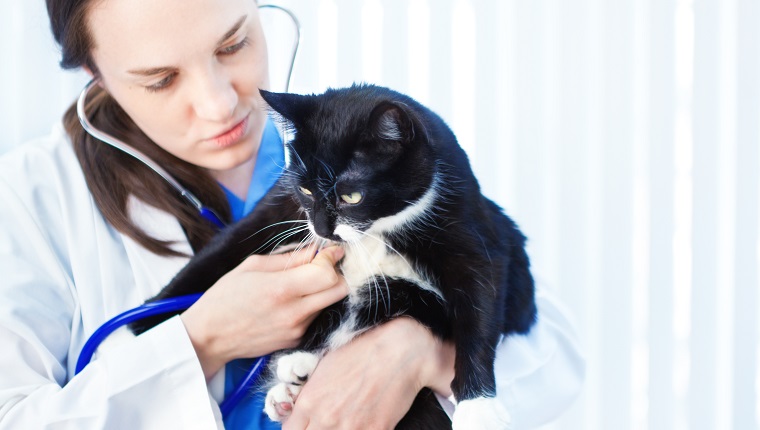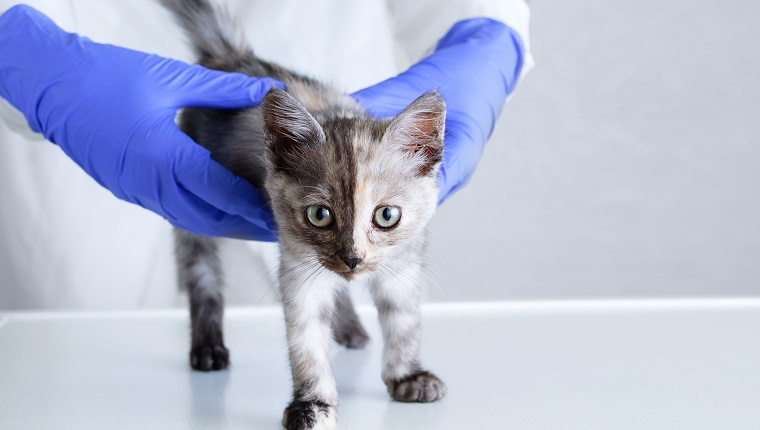Cystitis in cats is a condition that involves the cat’s bladder becoming inflamed. When the cause is unknown, vets classify the condition as idiopathic and sometimes refer to it as feline idiopathic cystitis, or FIC.
Vets can often treat the condition with the use of anti-inflammatory medication; although, it is prone to recurring.
If you see signs that your cat might be suffering from bladder issues, then you must consult your veterinarian for a proper diagnosis and course of treatment. Here’s what you should know about the symptoms, causes, and treatments of cystitis in cats.
Symptoms Of Cystitis In Cats
Cystitis in cats can result in quite a wide range of symptoms. Some of the most common general symptoms include:
- Problems being able to urinate
- Urinating more frequently than normal
- Licking the genital area more than usual
- Urine with blood present in it
- Peeing outside of the litter box
Causes Of Cystitis In Cats

Vets often mark cystitis in cats as idiopathic, which means there is no easily identifiable underlying cause of the condition. Some of the other causes include:
- Bacterial infections
- Bladder stones
- Tumors in the urinary tract or bladder
- Blocked urethra
Veterinary Treatment
If you suspect that your cat is suffering from cystitis, then your veterinarian will want to carry out a full physical examination. They’ll also order urine tests to confirm a diagnosis. Vets may also suggest blood tests in certain cases.
When it comes to treatment, the precise steps will depend on the underlying cause of the condition.
In many cases, vets can treat cats with a course of antibiotics. As ever, if your vet prescribes your cat any medicine, it’s vital that you stick to the precise dosage and frequency instructions and complete the full course of medication.
If the cause of the condition relates to a blockage of the urethra, then your vet will order an emergency procedure to remove the blockage. In cases that involve bladder stones, vets may also have to surgically remove them.
In general, you can lessen the chances of your cat developing cystitis by ensuring that they take on enough fresh water every day and maintain a healthy weight.
Has your cat developed cystitis? Did your vet advise that your cat drink more water? Tell us all about it in the comments below.




